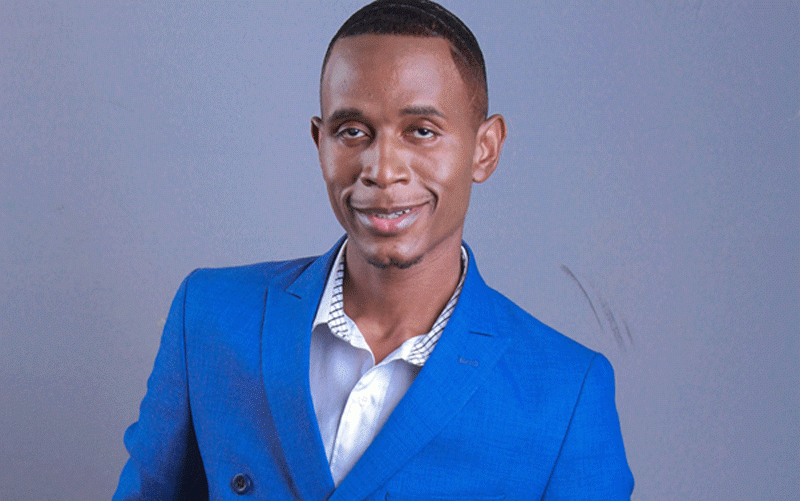
How much knowledge (if any) do we have about blind people? Do we even care? Listen to this:
I was in contact with a totally blind student at the University of Zimbabwe (name withheld) who was asking me to lend him US$50 to travel to Hwange. I said that I would give him.
I then took out a $20 bond note and gave him. He started to laugh then exclaimed: “Prof, I could be blind, but I am not stupid! This is 20 bond and not US$50!” I then gave him the US$50 note and he remarked, “Now we are talking business. This one is real!” I told him that I was only trying to see if he could tell the difference between the two notes, but I was amazed at how he did that.
I am still trying to figure out how a totally blind person could distinguish between the two notes just by touching them with his fingers. It must boil down to both passion and extra sensitivity which sighted people do not have.
We have often heard the saying: “Disability is not inability”.
I have been encouraged by this saying especially when I see blind people playing musical instruments better than those who can see. Having said that, I am sure blind people run through their lives untethered, desperate and clawing their way through murky waters trying to get to some form of self-love before the world puts a label through them.
Throughout history, there have been many famous blind musicians who have defied the odds and achieved great success in the music industry. Despite facing unique challenges and obstacles, these talented artistes have used their keen sense of hearing and musical intuition to create timeless music that has touched the hearts of millions of people around the world.
But another equally important reason is that blind people tend to be more sensitive to sound than normal sighted people. After all, research shows that 57% of blind musicians have perfect pitch, compared to less than 20% of musicians who do see. As a result, it is not surprising that blind people often strive in the music industry, especially as musicians or piano tuners. Though it has nothing to do with taste or creativity, blind musicians have proven again and again how often they have some abnormal technical ability. For instance, they are much more likely to enjoy absolute (i.e., "perfect") pitch than sighted musicians.
- Chamisa under fire over US$120K donation
- Mavhunga puts DeMbare into Chibuku quarterfinals
- Pension funds bet on Cabora Bassa oilfields
- Councils defy govt fire tender directive
Keep Reading
In 2004, researchers from Beth Israel Deaconess Medical Centre reported that absolute pitch occurs in approximately 60% of blind musicians, versus only 10% in sighted musicians.
In Zimbabwe we have had situations where great musicians such as Munyaradzi Munodawafa, Fanyana Dube, Paul Matavire and many blind members of the Jairos Jiri band have emerged and done some amazing and successful things.
If one was to go into the streets of Harare today, he or she is likely to come across a crowd of people surrounding and listening to a band of blind musicians entertaining the public.
Although the blind musicians are probably doing this in order to earn a living, the crowds are thrilled enough to give money to them, not out of sympathy or curiosity alone, but also because they find them entertaining.
Some are even wondering how such blind persons have acquired such musical skills.
In South Africa, we have the likes of Steve Kekana, Babsy Mlangeni and Jimmy Mojapelo, who have turned out to be brilliant blind musicians. (Steve Kekana died in 2021).
Despite their lack of sight, these musicians have been able to connect with audiences through their powerful lyrics, soulful melodies, and electrifying performances. They have inspired generations of musicians and continue to be celebrated for their talent, perseverance, and contribution to music.
Blindness has never been a barrier for these musicians, and their success serves as a reminder of the limitless potential of the human spirit.
Through their music, they have proven that anything is possible with hard work, dedication, and a deep passion for what you love.
Blind musicians have been an integral part of the music industry for centuries, with many contributing to various genres, including jazz, blues, reggae, kwaito, soul, classical, and rock.
Some of the most notable blind musicians in Western countries include Ray Charles, Clarence Carter, Stevie Wonder, and José Feliciano, who have all had long and successful careers, earning numerous accolades and awards for their music.
Let us look at the achievements of one exceptional blind musician here:
Stevie Wonder is an American singer, songwriter, and multi-instrumentalist who has become one of the most influential and beloved musicians of all time. Born on May 13, 1950, in Saginaw, Michigan, Wonder showed an early talent for music and signed his first recording contract at the age of 11.
Wonder’s music career spans over six decades, and he has released numerous critically acclaimed and commercially successful albums. His music style fuses elements of soul, funk, jazz, and pop, and his rich, soulful voice and mastery of various instruments, including the piano, harmonica, and drums, have made him a true musical legend.
Over the years, Wonder has produced an impressive catalogue of hit songs, including Superstition, Sir Duke, and Isn’t She Lovely. His music has not only been entertaining but also inspiring, often addressing social and political issues such as racism, poverty, and equality.
In addition to his music career, Wonder has also been a humanitarian and activist, using his platform to promote social justice and support various causes. He has been recognised with numerous awards and honours, including 25 Grammy Awards, and has been inducted into the Rock and Roll Hall of Fame.
Stevie Wonder’s musical legacy continues to influence and inspire musicians and fans around the world, making him a true icon in the music industry.
In Jamaica, he influenced other blind artistes. One notable Jamaican blind artiste is Paul Blake (October 19, 1965 – May 18, 2017), better known as Frankie Paul. Born blind, he has been dubbed by some 'The Jamaican Stevie Wonder'.
Born in Jamaica in 1965, Blake was born blind but as a child had his sight partially restored by an operation on a hospital ship. He sang for, and impressed Stevie Wonder when Wonder visited the school that Blake attended, prompting him to pursue a singing career.
Adopting the stage name Frankie Paul, he first found fame in the early 1980s, and he recorded prolifically throughout the decade. He recorded for virtually every producer/studio in Jamaica at some time and was known to release several albums a year.
Notable works of Frankie Paul include the popular Sara and Worries in the Dance. ( I thought that the latter song was titled War Is in the Dance when I first heard it.)
Paul resided in Africa in The Gambia from 1994. In January 2016 he underwent surgery to amputate a foot and part of his leg.
Frankie Paul died on May 18, 2017 from complications with his liver in Kingston, Jamaica.
These reports seem to indicate that besides a stronger sensitivity to auditory cues, blind musicians perhaps utilise many other parts of the brain in understanding music that were previously believed to be unrelated, such as the frontal lobe and parietal lobe.
Hence, it is not surprising that a lot of research also indicates that blind people have also a greater propensity for language and memory than normal people.
Despite this wealth of research, it's still not entirely clear how these highly developed auditory abilities translate into musical excellence — not even perfect pitch, as much as our culture has obsessed over the value of this gift. Yet all these adaptations do point to an overall more powerful and dynamic auditory cortex, which can respond to and manipulate sounds to a much more impressive degree than that of sighted musicians.
However, make no mistake, though — in no way does blindness guarantee musical excellence. As Ray Charles once famously put it: "I don't think I'm good because I'm blind, I think I'm good because I'm good." He was right: No matter what, it takes a lot more than a good ear to become a musical genius.
Having said all this, we must not forget the numerous challenges the blind face in order to function normally in society. Blind people have to deal with the inability to perceive the world by restricting their movement and contact with the world. Most also have a tendency to become over-protective on a daily basis in order to avoid danger that normal people don’t have to deal with. They also have to cope with the emotional awkwardness amidst the presence of sighted people. They have to work harder in life to accomplish even the most basic things of life, such as gaining employment.
Thus, think about how much more determination, hard work, talent and passion a blind person must acquire in order to become a great musician.
Feedback: frezindi@gmail.com










